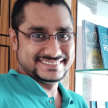Stephen Covey's Life-Changing Seven Habits for the Most Effective People and Organizations
The Underling principles are relevant for all times, all places and people of all ages

7 Habits of Highly Effective People by Steven R. Covey is a piece of powerful management literature that can truly transform an individual, business or a community if the underlined principles quoted in this book are followed thoroughly.
Covey is an avid educator throughout his life and a management guru. Born in 1932, he contributed massively to the enrichment of the Management field. He has plenty of works, among which 7 Habits of Highly Effective People may be the most prominent and influential one. In 1996, Covey was named as one of the most influential personalities by Time magazine.
7 Habits of Highly Effective People is written based on certain principles which are relevant to any age, any place and any individual. It is dubbed as the most successful literature in personal and interpersonal effectiveness. Step by step, we will discover why this is a business wonder of the 21st century.
What Does the Book Title Suggest to Us?
The name has got two important parts; seven habits and effective people. What does the word ‘Effectiveness’ mean? It means producing the maximum output by expending the least amount of input in the shortest possible time. As humans, when we will be able to reap the highest benefit in our short life, we will live an effective life.
For that, Stephen has mentioned about seven powerful habits which help an individual to get the best out of one’s life. This way of living is called right living. If somebody practices these seven habits in one’s life, s/he will surely become a successful individual who is able to live his life in the right and most effective way.
One thing is to mention here that he talked about seven habits. It means that these are habits, not any discrete activity. For being truly effective, these habits need to be ingrained into our behavior so that one can manifest these in one’s daily activities and interactions.
The Main Purpose of This Book
As I have already mentioned, the main purpose of this book is right living and subsequent discussion will strongly focus on this point.
The whole book is divided into four parts. The first one contains two chapters; Inside-Out and the 7 Habits- an Overview.
The name of the first chapter is Inside-out. It is all about paradigms. A paradigm is a structure that shapes a person’s way of thinking or perception. There are two approaches that define a person’s paradigm.
One is the Inside-Out approach which mainly focuses on developing a person’s inner being which generally tries to adjust or adapt with the outer being. This approach is based on the fact that any person’s paradigm can be rectified or modified anytime in one’s life. The personality is not determined by birth.
Another approach is called Outside-In which suppresses that a person’s character is determined by birth and only a few persons possess these attributes. The Outside-In paradigm is an old diminishing one.
The most modern one is the Inside-Out approach which emphasizes that any person can be a successful effective person who can live in the right way if s/he realizes the fault in one’s respective paradigm and finds the correct one as early as possible in life. For that, paradigm-shifting is required.
Paradigm Shifting
Paradigm shifting is only possible when an individual feels that s/he is in the wrong territory which s/he needs to change. That depends on a persons’ perception which is the lens through which we see the world.
Perception can be compared to a map. If anybody fails to read a map correctly, s/he surely will fail to reach the correct destination; similarly, if somebody holds a wrong perception regarding a problem, the underlying problem will never be solved.
The way we see a problem is a problem- Stephen R. Cover
That is why, for a paradigm shift to be taken place, one has to be aware of the incorrect perception and take action to find the proper one. The correct paradigm is principle-centered which is true for all times, places, and all people. This helps to find a new way of thinking which shows the path to the destination.
The Seven Habits- An Overview
The second chapter is “The Seven Habits-an Overview’. In this chapter, the author mentions about seven specific habits which are based on true principles mentioned earlier.
At the beginning of the chapter, there is a discussion about habits. Habits are repetitive tasks that we do every day. It is formed when there is an interaction among three things; knowledge, Skill and Desire. Effective habits are the ones that help a person achieve the maximum output, spending minimum input in the shortest possible time.
The Habits of Private Victory: Habits of Personal Effectiveness
The first three habits together are called the habits of private victory. When one achieves these, one becomes an independent person. These are,
Be Proactive Begin with the end in mind Put the first thing first
First Effective Habit Is to be Proactive

The First habit is to be proactive. It enables a person to establish a long-term personal goal which is the main focus of one’s life. We can say that this is the territory where somebody wants to reach.
After settling upon the destination, one has to find out the map and plan the whole journey. On the way, there can be many obstacles but one should not get one’s eyes away from the main target.
Being proactive also means finding out the best deal from all possible alternatives which will ultimately maximize the benefits of all the stakeholders on the way to the journey.
The Second Habit is to Begin with the End in Mind

The second habit is to begin with the end in mind. It is the planning stage. Everything has two creations; one is in reality and another one is in our mind.
Before materializing something, one needs to perceive the whole picture properly in mind. The later stages take place based on that imagination. As already mentioned, if the first creation is faulty, the subsequent steps will certainly fall.
The Third Habit is to Put the First Thing First

The third step is to put the first thing first. When the planning (habit 2) is done, prioritization comes next. To complete the whole process successfully, every single step is to be implemented painstakingly one after another. Failing to prioritize will cause delay, increase the cost and end the task ineffectively. Nurturing this habit in our life will help us truly to be effective.
The Habits of Public Victory: The Habits of Interpersonal Effectiveness
The next three habits are called the habits of public victory or the habits of inter-personal effectiveness. Whatever a person wants to acquire in life, it requires and involves certain human interactions which give fulfillment.
While interacting with others, it also needs to be effective otherwise ineffective interactions may also consume a significant amount of physical, monetary, and human assets. Let’s explore the fourth, fifth, and sixth habits below, which are also called habits of public victory.
The Fourth Habit is to Think Win-Win

The first habit of interpersonal effectiveness is to think win-win. It means balancing between own self and other-selves. In another word, it emphasizes interdependence which is the mid-point between independence and dependence.
Interdependence is certainly more effective than independence or dependence. The human being lives in a closely-knit intricate world. Everyone depends upon others for their survival and none is sufficient for oneself. Each person needs to contribute and seek assistance from others at the same time. This is interdependence which increases everybody’s benefits at the end of the day.
Habit Five is to Seek First to Understand Then to be Understood

For being truly inter-personally effective, it is necessary to listen to others first then reply. This habit is to seek first to understand then to be understood. It can also be called the ability to listen patiently.
If we want to listen clearly, many problems and conflicts get solved easily. Conflicts, misunderstandings, miscommunication certainly impact a task in a negative way. These also increase the completion time, resulting in ineffectiveness.
Habit Six Is to Synergies

The next habit is to synergies. It means that one plus one is greater than two. Group collective effort is greater than individual collective efforts of the same group. Synergy emphasizes great team bonding and ensures the success of a group when it works under a network that involves frequent and spontaneous communications.
Habit Seven is to Sharpen the Saw

In the end, the last habit is to sharpen the saw. It means that getting all the habits updated with the change in time, place, or individual. Our perception requires constant renewal as well.
Let’s recap,
Right living is necessary to reap the best in short life
For right living, seven effective habits are needed.
Perceiving a problem correctly is important for paradigm-shifting which enables one to start a new life with a new paradigm
If the map is wrong, the destination will also be wrong
First Habit: setting up a long term goal
Second Habit: Creation of mental image of that goal
Third Habit: Prioritization
Fourth Habit: Choosing win-win reality
Fifth Habit: listening passionately before speaking
Sixth Habit: Synergy
Seventh Habit: Sharpening the saw.
Thanks a lot for your patient reading. If you like this story, please give me a heart. A tip means a real encouragement for more creation
Find Us on Facebook,
About the Creator
Moshiur Rahman
My mother tongue is not English. But I like to imagine, think and write in English just because it is my passion and I love to do that.






Comments
There are no comments for this story
Be the first to respond and start the conversation.